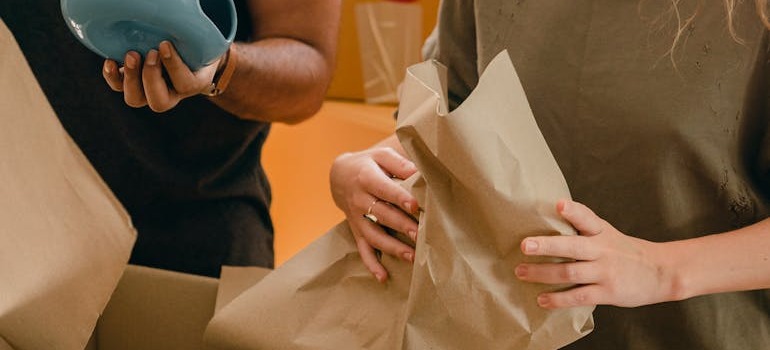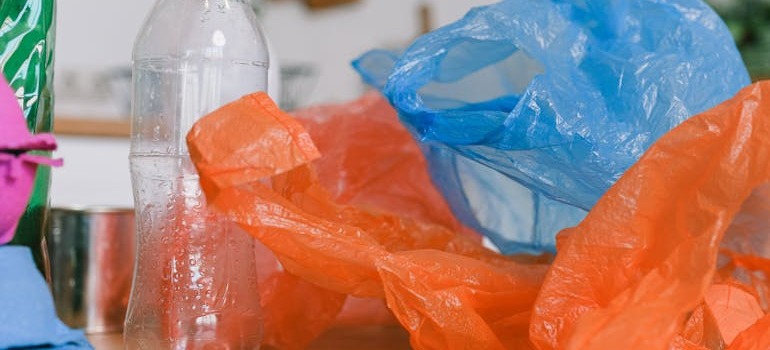Get Your Free Estimate Now
"*" indicates required fields
Packing a storage unit might seem straightforward, but a little planning can go a long way in keeping your belongings safe, organized, and easy to access. Whether you’re storing items for the short or long term, understanding the dos and don’ts of packing a storage unit can make a huge difference. This guide provides helpful tips to maximise your space and protect your belongings. If you’re looking for moving help Ottawa citizens rely on, it’s worth considering how these strategies can ease your packing process. By following these simple tips, you’ll ensure your items remain in great condition and accessible when needed.
Some of the things that will be a must
When looking at the dos and don’ts of packing a storage unit, there are some positives you want to take advantage of. The more of these good steps you can make, the smoother the packing and storing process can be. Here’s an overview of what you want to do before involving packing services Ottawa has to offer, including:
- Planning your layout
- Labelling
- Picking the right moving boxes
- Dismantling larger items
- Picking quality packing supplies
- Wrapping up fragile items
- Leaving space for access
- Taking care of special items
- Keeping records of stored items

Plan your layout
Before loading your unit and calling your movers Arnprior residents trust for help, plan the layout carefully. Start by placing essential or frequently accessed items toward the front, with seasonal or rarely-used belongings at the back. Think about adding sturdy shelves or stackable boxes for stability, as this will help keep everything in place. Leave a small aisle in the middle for easier access to each area. A few labelled containers for grouped items, like holiday decorations or documents, will make things simple to retrieve. With a clear layout, you’ll avoid clutter, minimize the risk of damage, and make it easier to find items when you need them.
Dos and don’ts of packing a storage unit will include clear labelling
Clear labeling is essential when packing a storage unit. Label all boxes on every side with their specific contents to avoid the hassle for the local movers Ottawa has to offer and yourself when opening multiple boxes to find what you need. Use clear, legible labels to stay organised and reduce stress when retrieving items later. Categorise boxes by room or type and include this information on the labels for easier identification. Additionally, consider colour-coding boxes for quick visual reference. Proper labeling ensures that you can efficiently locate your belongings without unnecessary searching. Neglecting to label can lead to disorganisation, making it difficult to access stored items and increasing the risk of damage.
Uniform-sized moving boxes
Using uniform-sized moving boxes helps maximize space and ensures safer stacking in your storage unit. When boxes are similar in size, you can stack them more efficiently, taking full advantage of vertical space. This approach keeps stacks stable and reduces the risk of tipping or shifting. Try using boxes that are sturdy enough to hold weight but manageable to lift. Stack heavier boxes on the bottom and lighter ones on top to avoid damage. This consistency in box size not only makes loading easier but also keeps your items secure, organized, and accessible whenever you need them.

Dismantle larger items
To save space in your storage unit, dismantle large items such as tables, beds, and bookshelves. Of course, you can always use furniture movers Ottawa citizens recommend to help you with that task. By taking these items apart, you can arrange them more compactly and reduce clutter. Keep screws, bolts, and assembly instructions in labelled bags, securing them to the respective item or storing them in a designated box for easy access. Wrapping larger pieces in blankets or padding helps prevent scratches or dents during storage. Arranging dismantled pieces along walls can further free up central space. This simple step will help maximize the storage unit’s capacity and make reassembly smoother when you need these items again.
Quality packing supplies
Are you asking yourself what to do with packing material after a move and how to to help yourself? Investing in quality packing supplies is essential for keeping your belongings safe during storage. However, you can also move quality materials that are left over from your relocation. Strong boxes, bubble wrap, packing paper, and reliable tape help protect items from damage, dust, and shifting.
Quality supplies reduce the risk of boxes collapsing or breaking down over time, which keeps your storage unit organised and secure. Sturdy materials also add a layer of protection against moisture and pests, helping to preserve your items. For delicate or valuable pieces, consider additional protective layers. Proper packing supplies make a significant difference in maintaining the condition of your stored items. Here are some additional materials to think about, including:
- Furniture covers
- Stretch wrap
- Foam sheets
- Silica gel packets
- Moving blankets
Wrap up fragile items some more
To keep fragile items safe, wrap them carefully in bubble wrap or packing paper, giving extra padding to glass, ceramics, and electronics. Label each box as “fragile” to ensure extra caution is taken when handling or stacking. Placing these boxes on top of heavier items prevents accidental crushing and reduces the risk of breakage. For added security, consider wrapping items individually before boxing, ensuring each piece is stable and shielded from bumps. Properly securing fragile items not only protects them but also gives you peace of mind while they’re in storage.

Leave an aisle for easier access
Leaving an aisle in your storage unit might seem like a waste of space, but it greatly improves accessibility and organisation. A narrow path down the centre of your unit lets you reach any item without unpacking or moving everything around. This small gap also makes it easier to spot and retrieve specific items, reducing the time spent searching through boxes. Arranging boxes along walls with labels facing the aisle keeps everything visible and within reach. An organised layout with clear access saves effort and frustration when you need to find something.
Important items need special care
For important items like documents, heirlooms, or electronics, take extra precautions to ensure their safety in storage. Store documents in airtight, waterproof containers to protect them from moisture and pests. Consider placing these containers on shelves or near the front, making them easier to access when needed. For delicate electronics, wrap them securely and avoid stacking heavy boxes on top. Personal keepsakes may benefit from padding to prevent damage. By taking these small steps, you can keep your valuable items in excellent condition and easily reachable, even during long-term storage. Also, choosing storage solutions Ottawa citizens recommend can create a safe space for your belongings.
Keep a record of your stored items
Keeping a detailed record of your stored items adds an extra layer of organisation and makes retrieval easier. Start by listing each item and noting which box or section it’s in. Combine this record with clear labels on every box for quick reference. A simple notebook or digital file works well for tracking items and helps prevent unnecessary unpacking when you need something specific. Include box numbers or labels in your list to streamline the search. This inventory will save time and reduce stress, making your storage unit more manageable and accessible. Besides the ways to make unpacking interesting, this makes things more efficient.

Things you want to avoid when packing a storage unit
Of course, when you analyze the dos and don’ts of packing a storage unit, you can’t forget about the things to avoid. Doing these can create difficulties at best and provoke huge problems at worst. Let’s go over just some of the steps to avoid, including:
- Storing perishable items
- Putting heavier items on top of lighter ones
- Using plastic bags for long-term storage
- Overpacking
- Storing hazardous items
- Not using climate-controlled storage
- Forgetting about insurance
- Not cleaning before storing items
Perishable items are a no-no
Do not keep any perishables in your storage unit, such as food, plants, or anything else that could go bad. Food can still draw bugs even if it is tightly packed, which could result in infestations or harm to other possessions. Furthermore, with time, odors from perishables may leak out, making the unit unpleasant and sometimes dangerous to enter. Unwanted odors in clothing or furniture can result from these odors sticking to other stored goods. Only keep non-perishables in your storage unit to maintain it hygienic, secure, and pest-free. Good storage habits keep your possessions in good shape and avoid unpleasant shocks.
Heavier items can’t go on top of lighter ones
Avoid stacking heavier items on top of lighter ones when packing your storage unit. Placing heavy boxes or items at the bottom ensures they don’t crush or damage more delicate, lighter items. This simple rule helps maintain the integrity of your belongings and keeps everything secure. When packing, remember that stability is key—heavy items provide a solid foundation, while lighter boxes can sit on top without the risk of being crushed. Proper organisation prevents damage and ensures that your storage unit remains easy to navigate, with everything in its right place for when you need it later.
Don’t use plastic bags for long-term storage
Plastic bags can retain moisture and provide the perfect environment for the growth of mold and mildew, so avoid using them for long-term storage. This is particularly harmful for textiles such as linens, upholstered furniture, and apparel. Over time, goods may deteriorate due to the dampness that plastic bags trap. Choose breathable materials instead, such as fabric storage bags or cotton sheets, which promote air circulation and keep your possessions dry. Proper ventilation preserves your belongings in excellent condition and helps prevent moisture buildup, so they stay fresh and undamaged throughout storage.

Overpacking is not something you want to do
Even while it could seem like a good method to maximize space, do not overpack your boxes. Overstuffed boxes have a higher chance of breaking or becoming challenging to stack, which could harm your belongings needlessly. Items may be crushed or shattered in boxes that are excessively heavy or packed too tightly because they may not withstand pressure. To make the contents of the box easy to handle and secure, keep them balanced and manageable instead. Use more boxes if needed to distribute bigger or heavier products. In the long term, this will make packing and unpacking far simpler and help safeguard your possessions.
Hazardous items have no place in storage
Steer clear of keeping dangerous, flammable, or corrosive things in your storage container. These things not only endanger the facility’s and your possessions’ safety, but they also put other people in danger. The majority of storage facilities have stringent restrictions that forbid the storage of such things, and noncompliance may result in fines or the loss of access to your unit’s access. Hazardous materials can also contaminate the area, harm other products, or even start fires. Remove all hazardous materials and dispose of or store them in accordance with rules to provide a safe and legal storage experience.
Overlooking climate-controlled storage
Neglecting climate-controlled storage can cause serious harm, particularly to delicate objects like antiques, electronics, and hardwood furniture. Particularly in Canadian areas where extreme cold and seasonal precipitation are prevalent, temperature and humidity fluctuations can result in warping, corrosion, or the growth of mold. Your possessions are shielded from these dangers by a climate-controlled unit, which helps maintain a constant environment. To guarantee long-term preservation, make sure to select a climate-controlled alternative when packaging fragile or precious objects. For delicate or expensive items, one little action might prevent future expensive repairs or replacements, making it a wise investment.
Dos and don’ts of packing a storage unit include ignoring insurance
When loading a storage container, neglecting insurance can result in needless dangers. Ensuring you have enough coverage is crucial for safeguarding your possessions, particularly priceless or irreplaceable goods. Although many storage facilities provide protection, it is a good idea to check with your home insurance provider to determine if your policy covers the goods you keep there. You risk losing money in the event of an emergency, like being burned, flooded, or stolen, if you do not have the right insurance. To ensure that your belongings are safe while being stored, take the time to obtain the appropriate insurance.

Cleaning before storing
Items must be cleaned before being stored to prevent offensive smells and the growth of mildew. Dust and grime can build up over time, making it more challenging to clean items after they have been retrieved. Clothing, furniture, and other items should be cleaned thoroughly to maintain their quality while being stored. Cleaning furniture or clothes before packing, for example, can help stop bacteria and dirt from building up. Going above and beyond to keep your products fresher and in better condition will save you time and effort when you are ready to use them again.
Pack your storage unit with ease
By following the dos and don’ts of packing a storage unit, you’ll maximise space, reduce the risk of damage, and ensure your items remain in excellent condition. Remember to keep frequently needed items easily accessible and avoid common mistakes like overpacking or neglecting climate control. With these simple tips, you’ll make your storage experience more organised, efficient, and stress-free, ensuring your belongings are ready whenever you need them.
Contact Us
How It Works
Quality services and
the highest level of professionalism
Contact our team
Reach out to Professional Movers Ottawa via phone or e-mail

Get a free estimate
Consult with our agents on additional services you may need
Organize your move with ease
Let us guide you through a smooth moving process



